Dorence Atwater of Terryville, Conn., enlisted in the Union Army expecting to see first-hand the glory of war. Instead he saw its worst horrors.
Dorence joined the 2nd New York Cavalry, but he was captured shortly after the Battle of Gettysburg. The Confederates sent him south to a prison camp.
First he went to Virginia. Then in March of 1864 he went to the Andersonville prison camp in Georgia. For more than a year, Dorence managed to survive the horrors of the camp, which included disease, starvation and death. Roughly 13,000 of the 45,000 prisoners sent to the 26-acre prison would die there.
Dorence Atwater, POW
Dorence was 19 at the time of his stay at Andersonville. Though sick upon arrival, he recovered and was assigned to work in the prison’s medical office. He had to maintain the list of every prisoner who died and prepare summaries of the death totals.
Dorence was told his records would be shared with Federal authorities, but he suspected they would never reach government eyes. They documented what Dorence believed was a systematic effort by the Rebel army to mistreat Union soldiers.
“The appalling mortality was such that I suspected that it was the design of the Rebel government to kill and maim our prisoners by exposure and starvation so that they would forever be totally unfit for military service, and that they withheld these facts,” he wrote.

Union soldier who survived Andersonville
Atwater’s List
Working alongside the camp superintendent, Henry Wirz, Dorence undertook the job of creating a second list of the dead. He would make sure that secret list reached the North. He began copying the entire list in August, and after months of work he completed his task.
All along, he knew he’d hang if Wirz discovered his secret list.
The conditions inside Andersonville were abysmal. Guards stole mail and gifts sent to prisoners. Among the prisoners, a gang emerged that terrorized and robbed incoming prisoners of their blankets and belongings. The gang then traded them with the guards for better food and privileges. Atwater saw one Confederate officer with $50,000 he stole from packages that families had sent to prisoners.
Unable to control the mayhem, Superintendent Wirz would eventually authorize prisoners to organize their own justice system within Andersonville. Wirz was a complicated figure. He presided over the horrors of Andersonville, but some evidence suggests that he did seek better conditions and food for his inmates. However, his requests were rejected.
After the war, a military tribunal convicted Wirz of war crimes and sentenced him to death, due to the testimony of many Andersonville prisoners, including Dorence Atwater. He was hanged in front of the U.S. Capitol.
Release From Prison
Before all that transpired, Dorence Atwater had to gain his freedom. With the rebel effort collapsing, he won a parole in February 1865. He smuggled his list out of camp.
He first faced the chaos that enveloped Washington following the assassination of President Lincoln. Atwater, sick and weak, traveled through the city and told the War Department about his massive list. Then he went home to Connecticut to recuperate.
In April of 1865 the War Department sent a telegram to Atwater asking him to return to Washington with his list. The government would pay him $300 for it.

Andersonville National Cemetery
For Dorence, the payment wasn’t enough. He didn’t want more money for the list, but he wanted to see it published. His goal throughout his ordeal was to be sure that the families of his fellow prisoners knew the fate of their loved ones.
Dorence negotiated with the War Department. He would let them have the list, but they must either give him a copy or let him copy it himself so that it could be published. The War Department agreed. But in the weeks that followed, the department reneged on the promise.
Clara Barton
As Dorence was arguing with the War Department, Clara Barton would learn of the list. The Civil War nurse and activist ran the Office of Missing Soldiers, which was attempting to locate the whereabouts of all the soldiers who died in the war.
Barton summoned Dorence to help her. Armed with his list, they accompanied the Army to Andersonville to begin marking the graves of the dead. The thoroughness of Dorence’s list resulted in the identification of about 95 percent of all the Andersonville graves.
But frustrated by the lack of any effort to publish the list, Dorence took matters into his own hands. He stole a copy of his list from the Army and refused to give it back.
Dorence quickly found himself arrested, court martialed and sentenced to prison. Clara Barton intervened. She reached out to President Andrew Johnson and arranged a pardon for Dorence. Finally, in 1866, he submitted his list to the New York Tribune for publication in 1866.
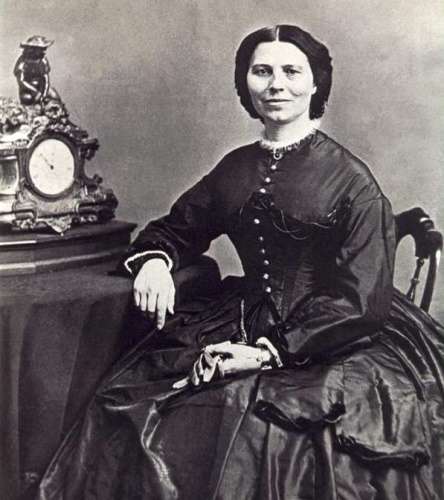
Clara Barton
Clara Barton’s introduction noted: “For the record of your dead, you are indebted to the forethought, courage, and perseverance of Dorence Atwater, a young man not yet twenty-one years of age; an orphan; four years a soldier; one tenth part of his whole life a prisoner, with broken health and ruined hopes, he seeks to present to your acceptance the sad gift he has in store for you.”
Dorence and Clara Barton would tour the country, delivering lectures about Andersonville to raise money for the Office of Missing Soldiers.
Diplomat
In the 1870s, Dorence Atwater finished his work with his list and he joined the State Department. He served first in the consulate in the Seychelle Islands and later in Tahiti. There he married into the royal family in 1875 and established several successful businesses.
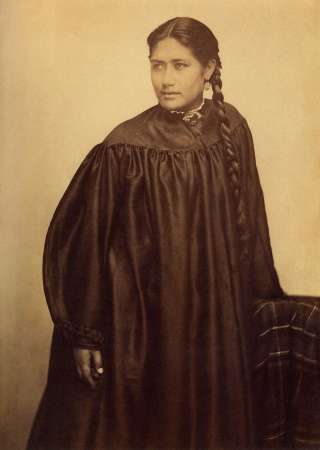
Moetia Salmon Atwater
In 1908, Dorence and his wife Princess Moetia Salmon Atwater returned to Connecticut to see old friends and family. The couple maintained homes in San Francisco and Tahiti. In 1910, Dorence died. He was beloved by Tahitians for his and his wife’s work with the poor. He received the first state funeral ever conducted for a non-native Tahitian.
This story about Dorence Atwater was updated in 2023. Images: Andersonville National Cemetery By Bubba73 (talk), Jud McCranie, CC BY-SA 3.0, https://commons.wikimedia.org/w/index.php?curid=20587782

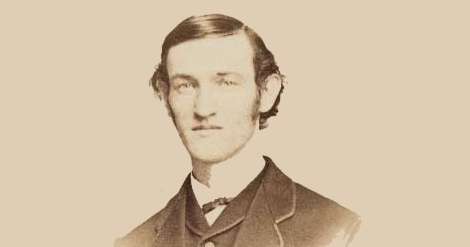
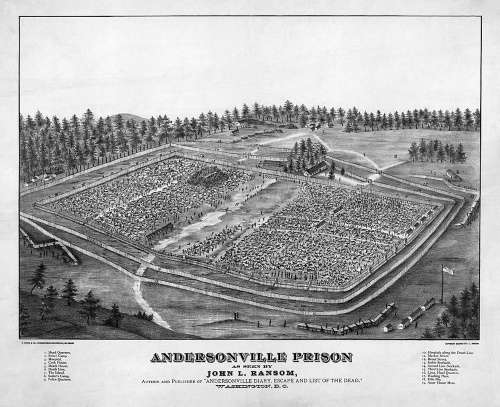
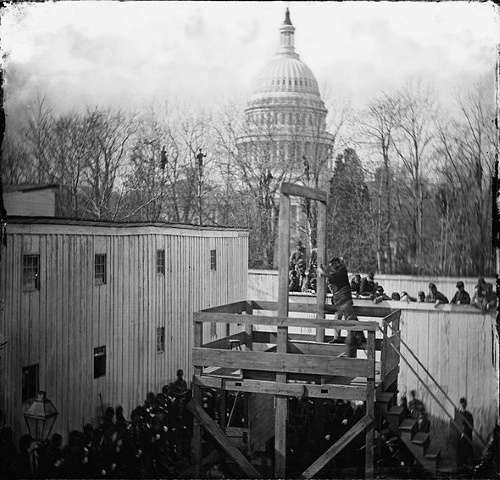
6 comments
One of our “ghosts” at our Ghosts in the Graveyard event this Friday night in Longmeadow will tell this story!
[…] In 1851, he went to work for the engraver Frank Leslie in Boston. Five years later he went into business with a partner to create lithographs, specializing in prints of buildings and towns in Massachusetts. He became known for maps of the Civil War. […]
[…] The overarching theme of the questionnaire, said Pittsley: “War is hell.” […]
[…] In 1851, he went to work for the engraver Frank Leslie in Boston. Five years later he went into business with a partner to create lithographs, specializing in prints of buildings and towns in Massachusetts. He became known for maps of the Civil War. […]
[…] the Civil War he lived in England, where he promoted the Union cause with colorful speeches and a newspaper. He […]
[…] the United States in 1838. His father served in the Civil War, suffering as a POW in the notorious Andersonville Prison. That left him with an addiction to drink, which led to his death by […]
Comments are closed.